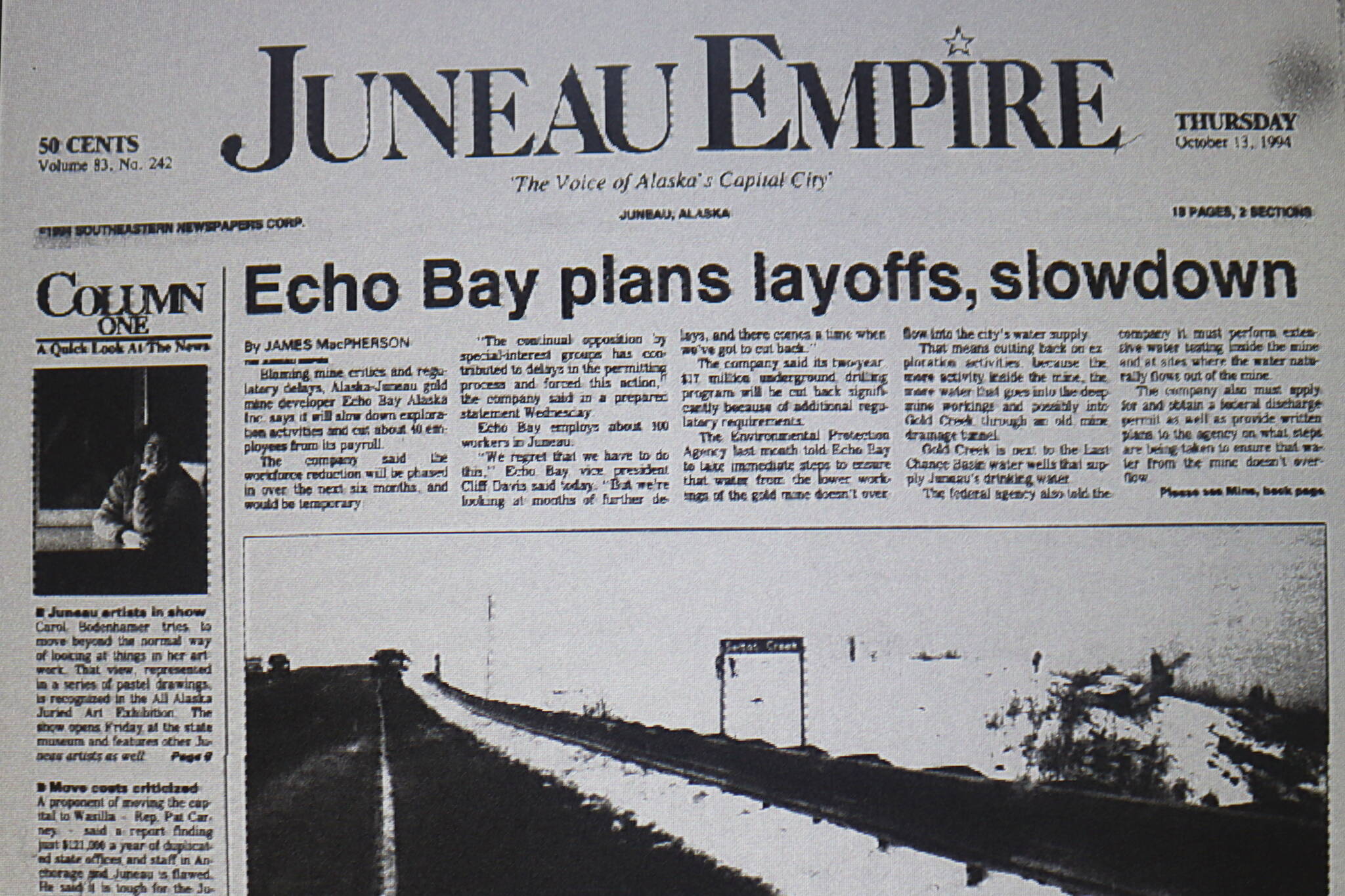Empire Archives is a series printed every Saturday featuring a short compilation of headline stories in the Juneau Empire from archived editions in 1984, 1994 and 2004.
This week in 1984, testimony by local residents Wednesday night was overwhelmingly favorable toward the Auke Bay floating breakwater project which could provide moorage for 260 boats and encourage expansion of private marinas in the area. Of about 15 people who gave public testimony, only two spoke against the project. About 150 residents attended the public hearing called by the U.S. Army Corps of Engineers to get comments on the draft environmental impact statement prepared for the project. Several suggestions were given to the Corps, including giving more attention to the effects of not building the 966-foot breakwater, and more discussion on differences in crowding and pollution between the 150-slip and 260-slip alternatives. The EIS evaluated three basic alternatives: 260 slips, 150 slips and no action. It was ordered by Federal District Judge James VenderHeydt as a result of a lawsuit filed by a group of Auke Bay residents.
The breakwater was ultimately built in 1985, and today the harbor capacity is approximately 325 vessels and there are an additional 70 spaces for permanent moorage.
Original Story: “Auke Bay gets support during public hearing,” by Kirk McAllister. 10/18/1984.
This week in 1994, blaming mine critics and regulatory delays, Alaska-Juneau gold mine developer Echo Bay Alaska Inc. says it will slow down exploration activities and cut about 40 employees from its payroll. The company said the workforce reduction will be phased in over the next six months and would be temporary. “The continual opposition by special-interest groups has contributed to delays in the permitting process and forced this action,” the company said in a prepared statement Wednesday. Echo Bay employs about 100 workers in Juneau. “We regret that we have to do this,” Echo Bay vice president Cliff Davis said today. “But we’re looking at months of further delays and there comes a time when we’ve got to cut back.” The company said its two-year, $17 million underground drilling program will be cut back because of significant regulatory requirements. The Environmental Protection Agency last month told Echo Bay to take immediate steps to ensure that water from the lower workings of the gold mine doesn’t overflow into the city’s water supply.
Echo Bay would halt operations at the Alaska-Juneau gold mine in 1997 due to a collapse in gold prices as well as ongoing regulatory battles with the EPA.
Original Story: “Echo Bay plans layoffs, slowdown,” by James MacPherson. 10/13/1994.
This week in 2004, the state ferry that was extensively damaged in May is undergoing sea trials and inspections this week following months of repair work. The Alaska Marine Highway System has not set a date for the LeConte to return to service, said John Manly, spokesman for the Alaska Department of Transportation. “We want to get it back on line as soon as we possibly can,” he said. The AMHS ferry Aurora will continue to handle the LeConte’s normal schedule until the repaired ship returns to service, Manly said. The 235-foot LeConte was going from Angoon to Sitka in Southeast Alaska on May 10 when it ran aground. Eighty-six passengers and 23 crew were evacuated. A Coast Guard investigation revealed that the crew made a decision to change course and veer close to Baranof Island before striking the reef. The crew decided to navigate between Otstoia Island and Baranof Island and failed to see a navigation aide marking the proper route past the reef.
Today the Alaska Marine Highway continues to struggle with both mechanical problems with its aging fleet that frequently result in reductions or cancellations of sailings, as well as recruiting enough employees to staff all ships that are fit for service.
Original Story: “Damaged ferry undergoing sea trials,” by the Associated Press. 10/14/2004.
• Contact Mark Sabbatini at mark.sabbatini@juneauempire.com or (907) 957-2306.

